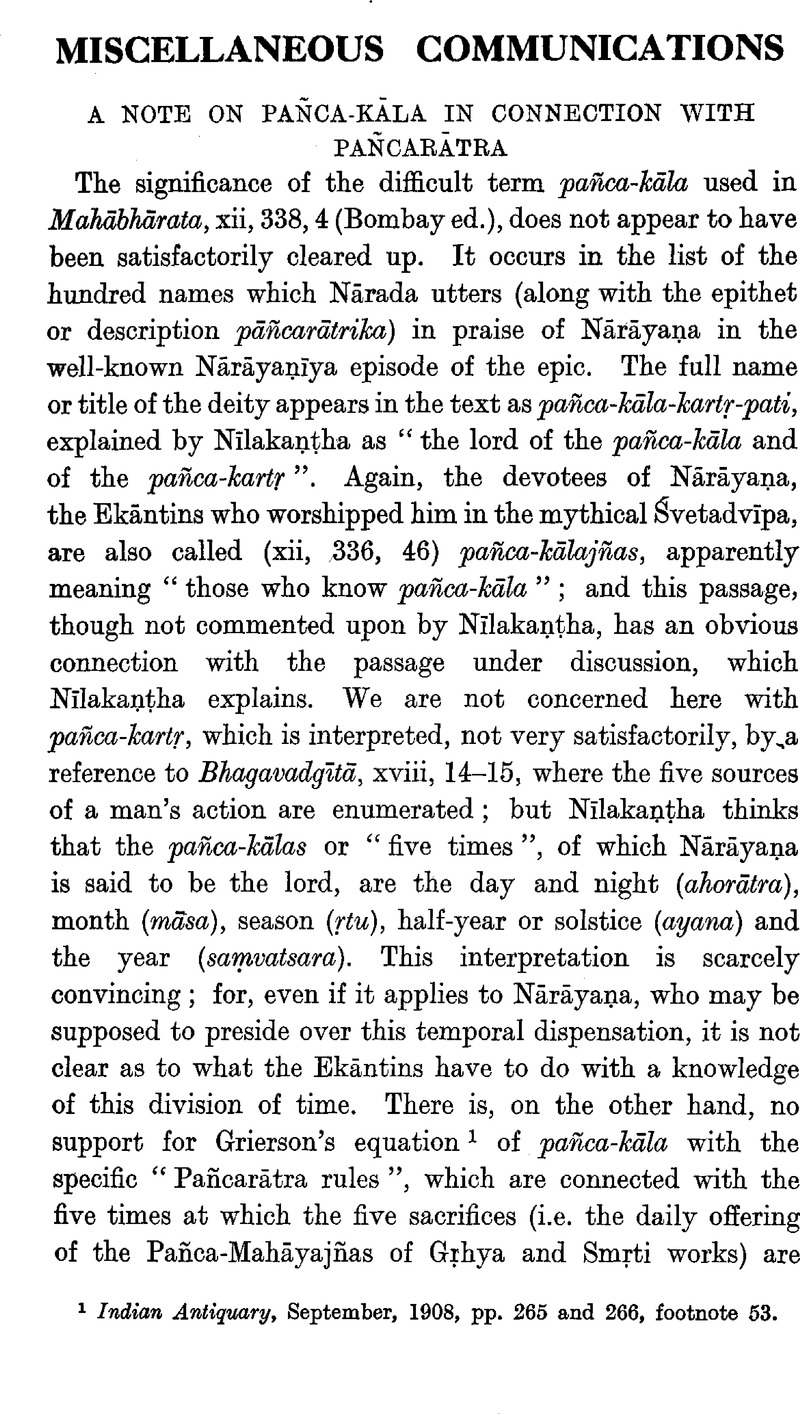No CrossRef data available.
Article contents
A Note on Pañca-Kāla in connection with Pañcarātra
Published online by Cambridge University Press: 15 March 2011
Abstract

- Type
- Miscellaneous Communications
- Information
- Copyright
- Copyright © The Royal Asiatic Society 1931
References
page 415 note 1 Indian Antiquary, September, 1908, pp. 265 and 266, footnote 53.
page 416 note 1 Described in Descriptive Cat. of Govt. Oriental MS. Library, Madras, vol. v, p. 2073.
page 416 note 2 Mentioned in Burnell, , Tanjore Catalogue, p. 314Google Scholar.
page 416 note 3 Included in Oppert, Lists of Sansk. MSS. in Southern India, No. 291.
page 416 note 4 Nīlakaṇṭha explains this term as “one who is attainable by the scripture of the Pañcarātras (pañcarātrâgama-gamya).
page 417 note 1 It is scarcely necessary to point out that, even if their origin might have been independent, the Pañcarātras are apparently identified with the Ekāntins or Nārāyaṇīyas in the epic. Apart from the fact that Nārāyaṇa himself is called Pāñcarātrika, we are told (xii, 339, 110 f.) that the Pañcarātras only intensified the cult introduced by Nārada, which must be the doctrine explained to him by Nārāyṇa himself.
page 417 note 2 Svāmin, A. Govindâcārya in JRAS. 1911, pp. 940 fGoogle Scholar.
page 417 note 3 Schrader, F. Otto, Introduction to the Pañcarātra, Adyar (Madras), 1916, pp. 24 fGoogle Scholar. Or the term Pañcarātra may be supposed to refer to the five forms of worship of the system, viz., abhigamana, upādāna, ijyā, svādhyāya, and yoga, which Śaṅkara mentions (on Brahma-sutra, ii, 2, 42) in his notice of the school.


